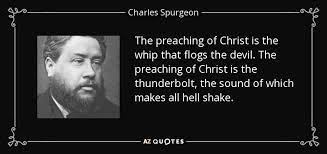“Therefore, having this ministry by the mercy of God, we do not lose heart.” (2 Cor. 4:1)
“So we do not lose heart. Though our outer self is wasting away, our inner self is being renewed day by day.” (2 Cor. 4:16)
Paul warns us of the danger of being disheartened in ministry. We answer the call with vision and passion for seeing God do a great work—thinking we have a contribution to make in Kingdom advance.
Then, there is the confrontation from an angry church member that blindsides us. The event we planned falls flat. The sermon was a dud. We gaze upon a congregation week by week that seems asleep. A leader drops out. A solid family moves away. A former strong supporter moves their membership because they “were not being fed.” There is the daily grind of the minutia of ministry, just like drops of water slowly eroding our zeal. We counsel with a young couple whose marriage is disintegrating. We weep with a family whose son has overdosed or whose teen daughter is pregnant. I hope you are not married to Mrs. Job who suggests, “Why don’t you curse God and die?” Dare I go on? I think I have said enough. You could add to the list.
Disheartenment is a slow cancer that leads to pastoral death—not necessarily physically, though that can happen with sin, stress or suicide. I am speaking of it ministerially. The pastor walks out of the pulpit for the final time, convinced he has failed—dreams dashed—and on to other things with his life. If you are struggling, please listen to Paul, “Do not lose heart!”
Our response may be, “Easy for you to say Mr. Super Apostle! Look at your success!” Paul did make an immeasurable impact, no doubt. But, he would not have had he lost heart. He struggled with it, but by God’s grace overcame it. The pressure that brought him to his knees drove him to God rather than away. That is our choice. It is foremost an act of the will that affects the emotions, instead of waiting for the emotions to direct the decision. It is a command, “Do not lose heart.”
Should you protest, “if only Paul knew what I am facing,” … as soon as you speak the words, you know that you and I have never faced what that man did.
“Are they servants of Christ? I am a better one—I am talking like a madman—with far greater labors, far more imprisonments, with countless beatings, and often near death. Five times I received at the hands of the Jews the forty lashes less one. Three times I was beaten with rods. Once I was stoned. Three times I was shipwrecked; a night and a day I was adrift at sea; on frequent journeys, in danger from rivers, danger from robbers, danger from my own people, danger from Gentiles, danger in the city, danger in the wilderness, danger at sea, danger from false brothers; in toil and hardship, through many a sleepless night, in hunger and thirst, often without food, in cold and exposure. And, apart from other things, there is the daily pressure on me of my anxiety for all the churches. Who is weak, and I am not weak? Who is made to fall, and I am not indignant? If I must boast, I will boast of the things that show my weakness. The God and Father of the Lord Jesus, he who is blessed forever, knows that I am not lying. At Damascus, the governor under King Aretas was guarding the city of Damascus in order to seize me, but I was let down in a basket through a window in the wall and escaped his hands.” (2 Cor.11:23-33)
Paul was a basket case!
He was sustained in seeing his ministry, with all its misery, as a mercy from God (4:1). The sinner that he was merited hell, yet what he received was mercy. That is true of us all. It is tempting to evaluate our difficulties and say, “I don’t deserve this!” True—what we deserve is hell. Yet, we have been spared. We should, as Christian comedian Mark Lowery points out, look at our circumstances, no matter how painful and say, “That sure beats hell!”
Paul pressed on because he looked beyond the immediate to the finish line (4:16). Looking in the mirror of the present situation would lead him to conclude, “I am wasting away.” Looking into the mirror of God’s Word at the future filled his lungs with the oxygen of hope, “renewed day by day.” That, after all, is how Jesus told us to live—one day at a time. Today’s load is quite sufficient without borrowing from tomorrow’s troubles, that may or may not materialize.
I think of old Jeremiah—whose ministry resume’ listed decline, opposition, pain—a complete disaster in the denominational records. He battled disheartenment repeatedly. How did he make it through? He lifted his eyes above:
“Remember my affliction and my wanderings, the wormwood and the gall! My soul continually remembers it and is bowed down within me. But this I call to mind, and therefore I have hope: The steadfast love of the Lord never ceases; his mercies never come to an end; they are new every morning; great is your faithfulness. ‘The Lord is my portion,’ says my soul, ‘therefore I will hope in him.’ The Lord is good to those who wait for him, to the soul who seeks him. It is good that one should wait quietly for the salvation of the Lord.” (Lam. 3:19-26)
If I can serve you, pray with you, support you—be a sounding board—whatever, please do not lose heart! Contact me and we will cry together, but through glistening tears look up to our faithful God who has called us!
DO NOT LOSE HEART!
































